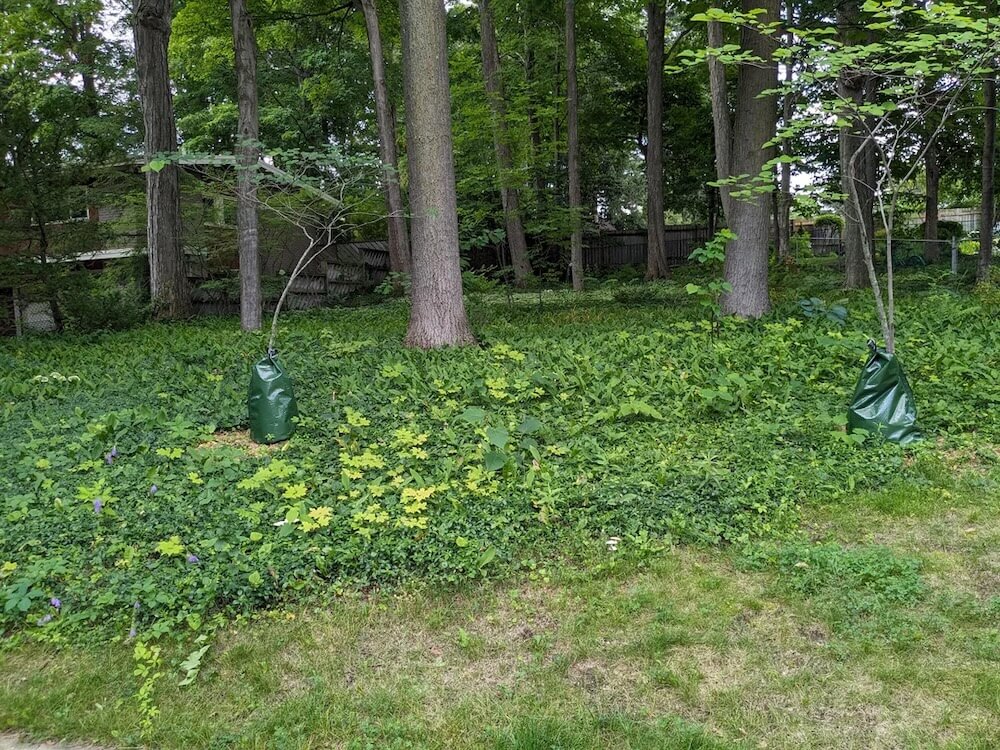After buying a home on a large woodlot with 16 lovely maple trees, one Redditor realized they have some unwelcome property squatters — namely, lots of English ivy! According to the post, other invasive species are also taking over, such as periwinkle and lily of the valley.
An invasive species isn't something to ignore on your property. As the OP states about the ivy, "It chokes everything else out and will kill all the maples eventually as well. It's a lot of work every year fighting it off." Yes, those strong trees can also fall victim.

This English ivy can grow about six feet while climbing as high as 99 feet annually. Unsuspecting pollinators like the American robin snack on its seed-like berries and distribute them to other spots in their droppings. Those maples can perish after the plant suffocates its trunk while the vines — which can weigh as much as 2,100 pounds, according to Green Seattle — become heavy enough to collapse branches and other structures.
🗣️ What's the hardest thing about taking care of your yard?
🔘 Mowing the lawn 🏡
🔘 Controlling weeds 🌿
🔘 Keeping pests at bay 🐿️
🔘 I don't have a yard 🤷
🗳️ Click your choice to see results and speak your mind
Looking for help, the Redditor asked, "Do we get the good herbicides from the farmers and kill it all or just mow the heck out of it and plant some aggressive natives and hope for them to win eventually??"
While working to rewild your yard may be time-consuming, your health, community, and vegetation can thrive by not being exposed to harmful toxins present in herbicides like glyphosate. An increased risk of Parkinson's disease, nervous system dysfunction, reproductive abnormalities, and some cancers are linked to glyphosate and glyphosate-based herbicides, according to a 2022 review in the Environmental Research journal.
With so many health dangers from pesticides, it's worth taking the time to pull up roots by hand, cut stems back, and work with the soil through mulch covering and/or compost. Check what seeds are native to your area by contacting the Xerces Society for Invertebrate Conservation, and start planting them. Working toward a native lawn creates another healthy stop in the ecosystem for pollinators to live and thrive.
Unfortunately, one gardener mentions: "Just got back from the local garden center. TONS of English ivy, pachysandra, and vinca. ZERO native ground covers."
Another commenter advises: "Hand pull and lay down a thick layer of mulch to prevent new weeds from germinating in the open soil. Scraping the soil could kill your trees and will remove the best quality soil layer you have."
Join our free newsletter for easy tips to save more and waste less, and don't miss this cool list of easy ways to help yourself while helping the planet.









